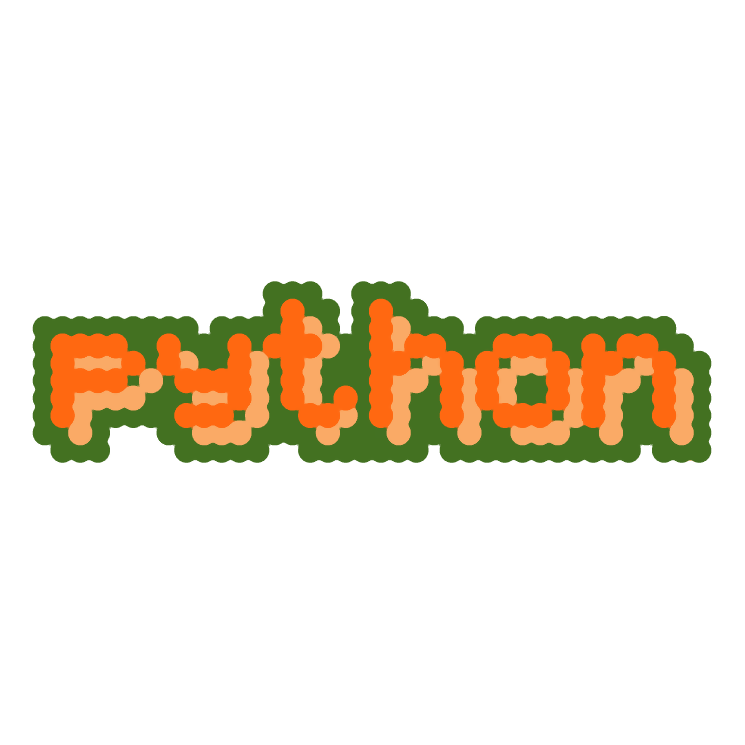10 recommended articles about non-greed
这篇文章主要介绍了Python正则表达式中贪婪/非贪婪特性的相关资料,文中通过示例代码介绍的很详细,对大家具有一定的参考价值,需要的朋友下面来一起看看吧。之前已经简单介绍了Python正则表达式的基础与捕获,那么在这一篇文章里,我将总结一下正则表达式的贪婪/非贪婪特性。 贪婪默认情况下,正则表达式将进行贪婪匹配。所谓“贪婪”,其实就是在多种长度的匹配字符串中,选择较长的那一个。例如,如下正则表达式本意是选出人物所说的话,但是却由于“贪婪”特性,出现了匹配不当:>>> sentence = """You said "why?" and I say "I don't know".&

简介:这篇文章主要介绍了Python正则表达式中贪婪/非贪婪特性的相关资料,文中通过示例代码介绍的很详细,对大家具有一定的参考价值,需要的朋友下面来一起看看吧。

简介:这篇文章主要介绍了Python正则表达式中贪婪/非贪婪特性的相关资料,文中通过示例代码介绍的很详细,对大家具有一定的参考价值,需要的朋友下面来一起看看吧。

简介:这里还想提一下正则表达式的量词里面涉及到贪婪和非贪婪模式,贪婪就是取最大值,尽可能多的匹配。非贪婪就正好相反(默认是贪婪模式)。举例说明:
4. PHP 正则表达式效率 贪婪、非贪婪与回溯分析(推荐)

简介:先扫盲一下什么是正则表达式的贪婪,什么是非贪婪?或者说什么是匹配优先量词,什么是忽略优先量词,好吧,下面通过实例给大家介绍下PHP 正则表达式效率 贪婪、非贪婪与回溯分析,一起看看吧

简介:"php正则匹配指定开始结束部分内容,指定开始结束位置,提取/匹配掉中间的内容,返回处理后的字符串内容.用到了非贪婪模式 ? 的. <?php /** * create by tuzwu@qq.com for 小桔灯www.xiaojudeng.com */ $string='My String <span class="infolist">& ...
6. preg_match_all 正则表达式贪婪与非贪婪模式

简介:贪婪匹配:正则表达式一般趋向于最大长度匹配,也就是所谓的贪婪匹配。 非贪婪匹配:就是匹配到结果就好,就少的匹配字符。
7. PHP提取数据库内容中的图片地址并循环输出_PHP教程
Introduction: PHP extracts the image address in the database content and outputs it in a loop. Copy the code as follows: /* 1 (?s) represents Pattern.DOTALL, which means matching newlines, allowing img to appear on multiple lines 2. *? represents non-greedy matching of any character until the following conditions appear
Introduction: A brief discussion on the use of non-greedy pattern matching in PHP regular expressions, and a brief discussion on regular expressions. A brief discussion on the use of non-greedy pattern matching in PHP regular expressions. A brief discussion on regular expressions. We usually write like this: Copy the code as follows: $str = "http://www.baidu/.comurl=www.sin
9. The use of non-greedy pattern matching in php regular expressions
Introduction: php regular expressions The use of non-greedy pattern matching
10. The use of preg regular function in php
Introduction: 1 preg_match and The difference between preg_match_all and preg_match_all is that preg_match only matches once, while preg_match_all matches all until the end of the string. Example: 2 The difference between greedy mode and non-greedy mode: String str= "abcaxc ";
[Related Q&A recommendations]:
A question about regular expression *? in python
js regular, non-greedy Pattern problem
##javascript - js regular expression length cannot be positioned
##python - How to regex match content in pairs of tags javascript - How to understand the greedy\non-greedy mode of regular expressions?The above is the detailed content of 10 recommended articles about non-greed. For more information, please follow other related articles on the PHP Chinese website!

Hot AI Tools

Undresser.AI Undress
AI-powered app for creating realistic nude photos

AI Clothes Remover
Online AI tool for removing clothes from photos.

Undress AI Tool
Undress images for free

Clothoff.io
AI clothes remover

AI Hentai Generator
Generate AI Hentai for free.

Hot Article

Hot Tools

Notepad++7.3.1
Easy-to-use and free code editor

SublimeText3 Chinese version
Chinese version, very easy to use

Zend Studio 13.0.1
Powerful PHP integrated development environment

Dreamweaver CS6
Visual web development tools

SublimeText3 Mac version
God-level code editing software (SublimeText3)

Hot Topics
 How to Use Python to Find the Zipf Distribution of a Text File
Mar 05, 2025 am 09:58 AM
How to Use Python to Find the Zipf Distribution of a Text File
Mar 05, 2025 am 09:58 AM
This tutorial demonstrates how to use Python to process the statistical concept of Zipf's law and demonstrates the efficiency of Python's reading and sorting large text files when processing the law. You may be wondering what the term Zipf distribution means. To understand this term, we first need to define Zipf's law. Don't worry, I'll try to simplify the instructions. Zipf's Law Zipf's law simply means: in a large natural language corpus, the most frequently occurring words appear about twice as frequently as the second frequent words, three times as the third frequent words, four times as the fourth frequent words, and so on. Let's look at an example. If you look at the Brown corpus in American English, you will notice that the most frequent word is "th
 How Do I Use Beautiful Soup to Parse HTML?
Mar 10, 2025 pm 06:54 PM
How Do I Use Beautiful Soup to Parse HTML?
Mar 10, 2025 pm 06:54 PM
This article explains how to use Beautiful Soup, a Python library, to parse HTML. It details common methods like find(), find_all(), select(), and get_text() for data extraction, handling of diverse HTML structures and errors, and alternatives (Sel
 Image Filtering in Python
Mar 03, 2025 am 09:44 AM
Image Filtering in Python
Mar 03, 2025 am 09:44 AM
Dealing with noisy images is a common problem, especially with mobile phone or low-resolution camera photos. This tutorial explores image filtering techniques in Python using OpenCV to tackle this issue. Image Filtering: A Powerful Tool Image filter
 How to Perform Deep Learning with TensorFlow or PyTorch?
Mar 10, 2025 pm 06:52 PM
How to Perform Deep Learning with TensorFlow or PyTorch?
Mar 10, 2025 pm 06:52 PM
This article compares TensorFlow and PyTorch for deep learning. It details the steps involved: data preparation, model building, training, evaluation, and deployment. Key differences between the frameworks, particularly regarding computational grap
 Introduction to Parallel and Concurrent Programming in Python
Mar 03, 2025 am 10:32 AM
Introduction to Parallel and Concurrent Programming in Python
Mar 03, 2025 am 10:32 AM
Python, a favorite for data science and processing, offers a rich ecosystem for high-performance computing. However, parallel programming in Python presents unique challenges. This tutorial explores these challenges, focusing on the Global Interprete
 How to Implement Your Own Data Structure in Python
Mar 03, 2025 am 09:28 AM
How to Implement Your Own Data Structure in Python
Mar 03, 2025 am 09:28 AM
This tutorial demonstrates creating a custom pipeline data structure in Python 3, leveraging classes and operator overloading for enhanced functionality. The pipeline's flexibility lies in its ability to apply a series of functions to a data set, ge
 Serialization and Deserialization of Python Objects: Part 1
Mar 08, 2025 am 09:39 AM
Serialization and Deserialization of Python Objects: Part 1
Mar 08, 2025 am 09:39 AM
Serialization and deserialization of Python objects are key aspects of any non-trivial program. If you save something to a Python file, you do object serialization and deserialization if you read the configuration file, or if you respond to an HTTP request. In a sense, serialization and deserialization are the most boring things in the world. Who cares about all these formats and protocols? You want to persist or stream some Python objects and retrieve them in full at a later time. This is a great way to see the world on a conceptual level. However, on a practical level, the serialization scheme, format or protocol you choose may determine the speed, security, freedom of maintenance status, and other aspects of the program
 Mathematical Modules in Python: Statistics
Mar 09, 2025 am 11:40 AM
Mathematical Modules in Python: Statistics
Mar 09, 2025 am 11:40 AM
Python's statistics module provides powerful data statistical analysis capabilities to help us quickly understand the overall characteristics of data, such as biostatistics and business analysis. Instead of looking at data points one by one, just look at statistics such as mean or variance to discover trends and features in the original data that may be ignored, and compare large datasets more easily and effectively. This tutorial will explain how to calculate the mean and measure the degree of dispersion of the dataset. Unless otherwise stated, all functions in this module support the calculation of the mean() function instead of simply summing the average. Floating point numbers can also be used. import random import statistics from fracti






